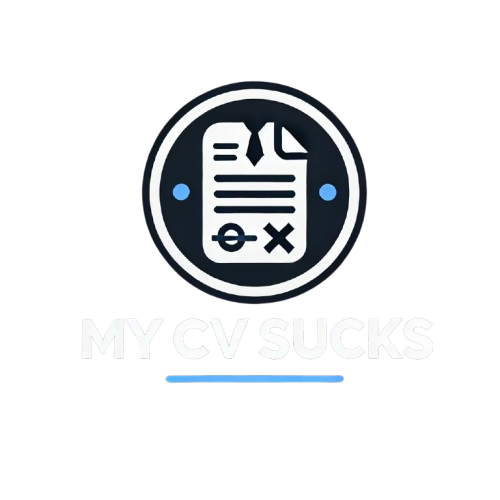Career Hub
Software Tester
The Ultimate Guide to Becoming a Software Tester in Australia
Landing a job as a Software Tester in Australia can be a fantastic career move. The tech industry is booming Down Under, creating a high demand for skilled professionals who can ensure the quality and reliability of software applications. This comprehensive guide will equip you with the knowledge and strategies to succeed in this dynamic field.
Career Path & Responsibilities
The career path for a Software Tester in Australia typically progresses from Junior Tester to Senior Tester, then potentially to Test Lead, Test Manager, or even into specialized roles like Automation Test Engineer or Performance Test Engineer.
Junior Software Tester Responsibilities:
- Executing test cases and documenting results.
- Identifying and reporting bugs using bug tracking systems (e.g., Jira, Bugzilla).
- Participating in test planning and execution.
- Collaborating with developers to resolve issues.
- Learning and applying different testing methodologies (e.g., Agile, Waterfall).
Mid-Level Software Tester Responsibilities:
- Designing and developing test cases based on requirements.
- Performing various testing types (functional, integration, system, regression).
- Estimating testing effort and timelines.
- Mentoring junior testers.
- Contributing to test automation efforts.
Senior Software Tester Responsibilities:
- Leading testing efforts for major projects.
- Defining testing strategies and processes.
- Reviewing test plans and test cases.
- Implementing and managing test automation frameworks.
- Providing technical guidance to the team.
- Performing code reviews (potentially).
- Contributing to the improvement of overall software quality.
Salary Guide
Salaries for Software Testers in Australia vary based on experience level, location, and company size. Here's a general overview:
| Experience Level | Sydney (AUD) | Melbourne (AUD) | Brisbane (AUD) |
|---|---|---|---|
| Entry-Level | $60,000 - $75,000 | $55,000 - $70,000 | $50,000 - $65,000 |
| Mid-Level | $80,000 - $100,000 | $75,000 - $95,000 | $70,000 - $90,000 |
| Senior-Level | $110,000 - $140,000 | $100,000 - $130,000 | $90,000 - $120,000 |
Note: These are estimates and may vary depending on various factors.
Essential Skills & Qualifications
Success as a Software Tester in Australia requires a blend of technical and soft skills.
Hard Skills:
- Testing Methodologies: Agile, Waterfall, Scrum, Kanban.
- Testing Types: Functional, Integration, System, Regression, Performance, Security, User Acceptance Testing (UAT).
- Defect Tracking Tools: Jira, Bugzilla, Azure DevOps.
- Test Management Tools: TestRail, Zephyr.
- Scripting Languages (for automation): Python, Java, JavaScript, Selenium, Appium.
- SQL: Database querying and manipulation skills.
- Operating Systems: Windows, macOS, Linux.
Soft Skills:
- Analytical Skills: Ability to identify and analyze problems.
- Attention to Detail: Meticulousness in identifying even subtle bugs.
- Problem-Solving Skills: Ability to creatively approach and resolve technical challenges.
- Communication Skills: Clear and concise communication of findings to developers and stakeholders.
- Teamwork: Collaboration with developers, designers, and other testers.
- Time Management: Ability to prioritize tasks and meet deadlines.
Educational Qualifications & Certifications:
While a formal degree isn't always mandatory, a Bachelor's degree in Computer Science, Information Technology, or a related field is highly advantageous. Certifications like ISTQB (International Software Testing Qualifications Board) can significantly boost your credentials.
Top Resume Keywords
Your resume needs to grab the attention of Australian recruiters. Here’s a list of essential keywords:
- Software Testing
- Test Automation
- Agile
- Scrum
- Waterfall
- Test Case Design
- Bug Reporting
- Defect Tracking
- Quality Assurance (QA)
- Software Development Life Cycle (SDLC)
- Selenium
- Appium
- Python
- Java
- SQL
- Jira
- TestRail
- Performance Testing
- Security Testing
- Regression Testing
- Integration Testing
- Functional Testing
- User Acceptance Testing (UAT)
Remember to tailor your resume to each specific job description. Need help creating a killer resume that showcases your skills effectively? Check out our resources at https://www.mycvsucks.com.
Common Interview Questions
Prepare thoroughly for your interviews. Here are some examples:
Behavioral Questions:
- Tell me about a time you found a critical bug that others missed. (Highlight your attention to detail and analytical skills)
- Describe a situation where you had to work under pressure to meet a deadline. (Demonstrate your time management and problem-solving skills)
- Give an example of a time you had to collaborate with a difficult team member. (Showcase your teamwork and communication skills)
- How do you handle conflicting priorities? (Demonstrate your prioritization and time management skills)
- Describe a time you failed. What did you learn from it? (Showcase your self-awareness and learning agility)
Technical Questions:
- Explain the difference between black-box and white-box testing. (Demonstrate your understanding of testing methodologies)
- Describe your experience with test automation frameworks. (Highlight your technical skills and experience)
- How do you prioritize test cases? (Show your understanding of test planning and execution)
- What are some common testing challenges you've faced and how did you overcome them? (Demonstrate your problem-solving skills and experience)
- Write a simple SQL query to retrieve specific data from a table. (Showcase your SQL skills)
Remember to research the company and the specific role before your interview. Practice your answers and be prepared to provide concrete examples.
Live Software Tester Jobs in Australia
Our system is currently gathering the latest job opportunities. Check back shortly as new positions are added around the clock!
